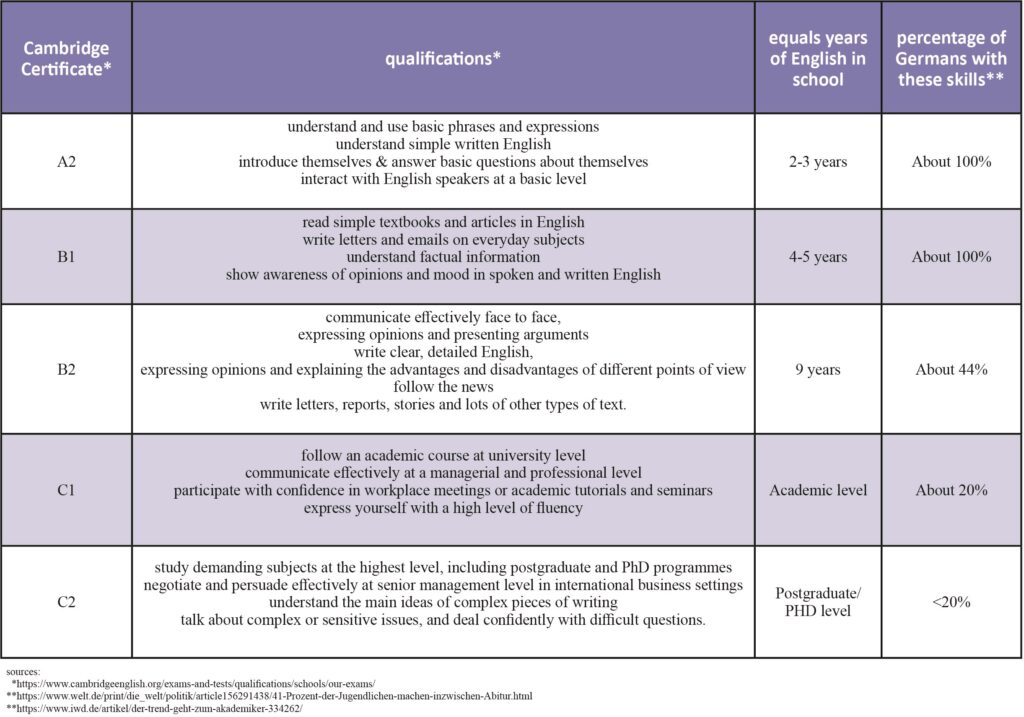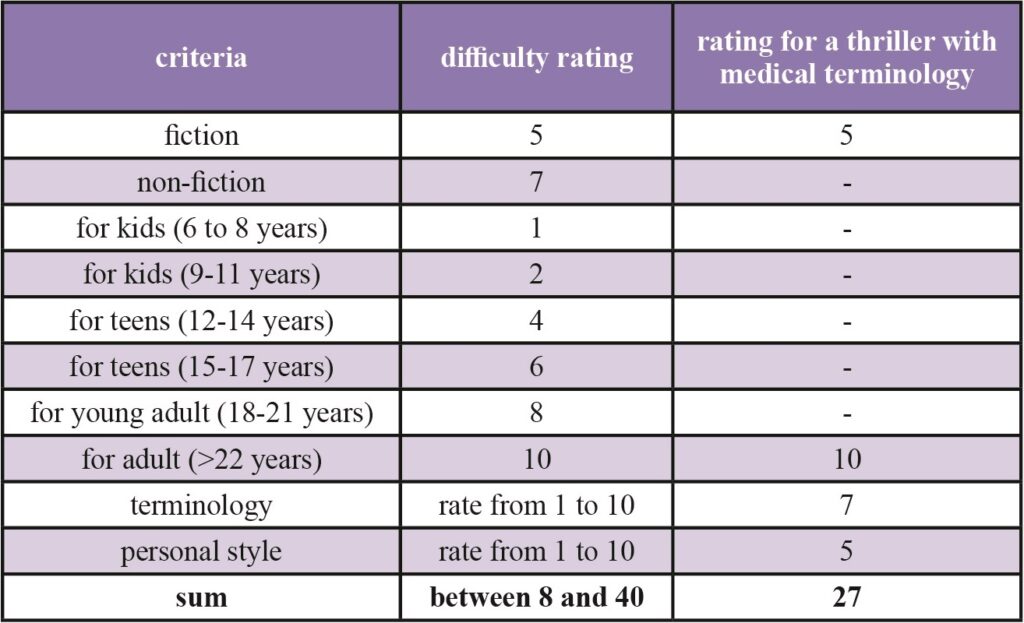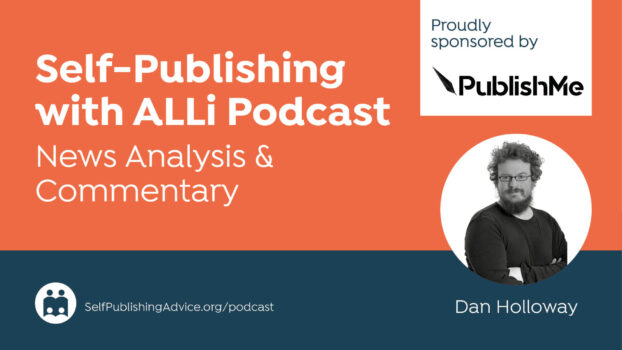
AK Amherst, Austrian indie author, shares her insights into placing English language books in the German market
Do you dream of getting your book into the German market but fear the cost of translation? Don't worry, translation isn't essential – because so many Germans speak and read English very well. But to attract the attention of English-speaking Germans, you need to know how to position your book in the German marketplace. Austrian indie author A K Amherst, shares the insights that she's gained of both English and German markets since launching her debut novel Belfast Central simultaneously in English and German at the London Book Fair n April 2018.
How Big is the German Market for Books?
Germany has about 82 million inhabitants, about 78 million of them are aged six or older and therefore potential readers (stats for the year 2017, source: statista.com, 10th of October 2018).
An immensely huge market.
The only catch: the level of English varies wildly. Consequently, identifying your target group as precisely as possible is a major success factor for your book.
How Good are Germans at English Anyway?
Since 1964, English has been a compulsory subject in German schools from the fifth year onwards. Consequently, even students who finish their education at the earliest opportunity, (after nine years) will have had English lessons for four years.
Today, even pupils in primary school learn English (mainly voluntarily and not in every school). “Perfect, let's share my book with everyone,” you might be thinking. But unfortunately it's not that easy.
Although the basic education in English is common, fluency is not.
As you may know, the Cambridge Language Certificates determine the English level of a non-native speaker, A2 being the most basic and C2 the most advanced. The table below gives you an overview of the English skills of German students. Please bear in mind that this is a generalization and individual skills will vary.

Which Level of English Do Readers of Your Books Require?
In order to narrow your target group down, you need to take a closer look at your book and ask yourself: “Which level of English does my book require?”
Try to not answer this question from a native speaker perspective. “Difficult English” for your reader might be “easy English” for you.
Which level of English your book requires depends on:
- whether you write fiction or non-fiction
- whether you write for kids, teens or adults
- whether you use specific terminology in your book (e.g. medical or juridical vocabulary)
- your personal style
To get a feeling for the difficulty of your book, you can use my rating system in the table below:

Your score will be somewhere between 8 and 40. For example, a thriller for adults with a bit of medical terminology (e.g. the main character is a coroner) and the writing style is common for English native speakers will total 27 points (see right column in the table above).
With a score of 21 or higher, you will be on an English skill level that equals the B1 requirements of the Cambridge Certificate.
Who is Your Reader?
You individual difficulty score is one indicator to find your readership. If your book requires an English level of B1, your possible readership consists of:
- people who learned English for at least nine years and finished school quite recently
- people who learned English for less than nine years but use English in their daily life quite commonly (e.g. at work, in free time – reading English magazines of interest or being member in a language learning club)
Other important indicators are, of course, genre and topic of your book. Here you can narrow down your readership to certain interest groups, just as you would do with your English speaking audience.
Case Study of Belfast Central
Let's take my book Belfast Central, for example. It was my debut novel, so I had to build a readership from scratch. Since my book is a thriller about the Troubles in Northern Ireland and the main character is a paramedic, I identified the following three main groups of readers:
- 1) People who are interested in Ireland
- a) people who like to travel
- b) members of Irish Societies in Germany
- 2) Paramedics
- 3) schools and universities
- a) English teachers
- b) students (age 16+)
Once you combine your English skill requirements with your interest groups, you get a pretty good picture of your possible readership.
You can then target them with social media advertising, reach out to them via email and/or create content on your blog that might be of interest for them.
The best part: Since you narrowed down your readership to a certain level of English skills, you can address them in English. No German needed!
Going the Extra Mile
In order to make your story accessible to even more German readers, consider creating a “non-native” version of your book:
- Find uncommon vocabulary and replace it with more commonly used terms.
- Shorten sentences that are long and simplify sentence structure where needed.
A little adaption here and there can do wonders to the readability for a foreign reader.
I give you four reasons why it is worth going that extra mile:
- There is always unknown vocabulary
No matter how good your German readers are in English, they are unlikely to understand every word. Since reading with a dictionary is no fun at all, they will rely on context. If you make it easier for them to understand the context, they will be grateful. - Most people read before going to bed
Reading in a foreign language is tricky enough. Since most people read before going to sleep, reading in a foreign language is even harder. - You distinguish yourself from others
Imagine your English book in a German bookstore with a badge on it that states “simplified English for non-natives”. People will be more likely to try an English book if they know it is written in simpler English. Even better, they can improve their English by reading your books. - The original stays the original
One thing is for sure: The best translation cannot compete with the book in its original language – even if the original was simplified.
OVER TO YOU Do you have any other tips to add to AK Amherst's clear and clever strategy? Do you have any experience of dealing with other non-English-language markets that you'd like to share? We'd love to hear your thoughts.
Sources
https://de.statista.com/statistik/daten/studie/1365/umfrage/bevoelkerung-deutschlands-nach-altersgruppen/
https://www.cambridgeenglish.org/exams-and-tests/qualifications/schools/our-exams/
https://www.welt.de/print/die_welt/politik/article156291438/41-Prozent-der-Jugendlichen-machen-inzwischen-Abitur.html
https://www.iwd.de/artikel/der-trend-geht-zum-akademiker-334262/
#Indieauthors - wondering how to position your English language #books in the #German market? Note: #translation may not be necessary! Austrian novelist @Amherst_AK shares her successful strategy. Share on X
OTHER USEFUL POSTS ABOUT REACHING GLOBAL MARKETS
From the ALLi Author Advice Center Archive






Good information; but the question that remains is how do I get my books into the German market to begin with? I have global distribution with Lulu but it seems that Amazon may be a better vehicle for foreign markets. Might want to follow up this article with how indie publishers can access foreign markets.
ALLi recommends publishing via Amazon and IngramSpark simultaneously, Denise- that will get you into markets all around the world into all the territories in which those platforms have a presence, which includes Germany.
Thank you A K Amherst for this very interesting article. I am an Italian-English translator and observe the flow of books between markets every day. The idea of creating a “non-native version” of a book is brilliant and I can see how that can work for English-language books going into other markets. I fear the level of English is somewhat lower in Italy than it is in Germany but younger Italians may be catching up.